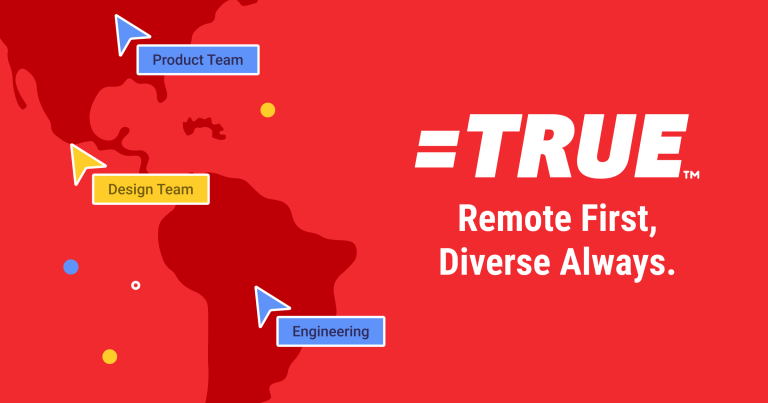The Benefits of Remote Work for Inclusion, Diversity, and Equality
Inclusion, diversity, and equality strongly influence the success and direction of the modern company. Remote work, which gained significant momentum due to advances in collaboration technologies and the global pandemic, became a tangible approach to advancing these important principles without sacrificing productivity or teamwork.
The digital era has all but eliminated the need to confine oneself to geographical boundaries for professional opportunities. This fundamental shift in the workplace paradigm breaks down barriers to entry for diverse talent from various geographic, socio-economic, and cultural backgrounds, making remote work a powerful tool for nurturing diversity and creating best-in-class teams. Remote work effectively unlocks the global job and talent market for everyone. The best employers are available to the best talent anywhere and vice versa. The new possibilities for both groups are endless.
A well-functioning remote work model places greater emphasis on productivity and output rather than hours logged, eliminating the traditional yardstick of a nine-to-five work model. This flexible system contributes to a more equitable distribution of opportunities, allowing employees to customize their work days according to their personal life situations. Whether it’s caring for a family member, juggling childcare, or pursuing further education, remote work provides individuals the unique opportunity to manage personal commitments while remaining productive.
“Remote work has the power to encourage what I call ‘heart-forward’ or ‘human-centric’ leadership.”
– Sara Sutton
By leveling the playing field, remote work presents an innovative solution to fostering a more diverse, inclusive, and equitable work environment. As we move more towards a remote-based work model, it becomes imperative for companies to harness the benefits and opportunities it presents for building such a work culture.
Creating an Inclusive Company Culture through Remote Work
Remote teams can implement several strategies to ensure equal opportunities for all members. First and foremost, it is crucial to establish clear and transparent communication channels. This means using tools that facilitate real-time communication, such as video conferencing, instant messaging, and project management software. By ensuring that all team members have equal access to information and can participate in discussions, remote teams can foster a sense of inclusivity and ensure that everyone has an equal opportunity to contribute and be heard.
Additionally, remote teams can implement strategies to mitigate bias and promote fairness in decision-making processes. This can be achieved by establishing clear criteria and guidelines for evaluating performance, providing regular feedback and performance reviews, and ensuring that promotions and opportunities for growth are based on merit rather than favoritism. By implementing these measures, remote teams can create a level playing field where all members have equal opportunities for advancement and recognition.
The Power of Flexibility: How Remote Work Supports Work-Life Balance
Our workplaces are rapidly evolving, it is increasingly crucial to place employee well-being at the core. Striking the right work-life balance is of paramount importance, and remote work presents an opportunity to achieve this balance. We firmly believe, as a seasoned professional, that the power of flexibility in remote work situations can have considerable positive impacts on employees’ personal lives, thereby boosting their overall productivity and satisfaction levels.
The concept of flexibility inherent in remote work goes beyond simply choosing your workspace or the time you start your daily tasks. It extends to critical aspects of life such as health, family, and hobbies. It redefines the norms for a better lifestyle, and we have observed this transformation first-hand.
(Source: Owl Labs via PR Newswire)
A study involving 1,097 American workers revealed that businesses offering remote work have a 25% lower employee turnover rate compared to those who do not provide such an option. The primary reason behind this statistic is that 51% of employees opting for remote work do so to enhance their work-life balance.
- Health: With remote work, employees can more easily integrate healthy habits into their day. This could be exercising during a lunch break, cooking homemade meals, more timely health check-ups or better management of chronic conditions.
- Family: Remote work enables employees to spend quality time with their family or loved ones. This flexibility can significantly reduce stress associated with commuting or being away from home, resulting in a healthier family life.
- Hobbies: The autonomy associated with remote work allows individuals to easily pursue personal interests, hobbies or relaxation practices. This can greatly enhance an individual’s mental health and overall life satisfaction.
But how does this flexibility influence the goal of inclusion, diversity, and equality in the workplace?
Well, the story is pretty straightforward. When organizations acknowledge the inevitable interplay between employees’ personal lives and their work, it demonstrates an understanding and respect for their individual needs. This collective understanding we’re fostering serves as a pillar of an inclusive and equitable work environment that cherishes diversity. It allows employees, no matter their background, lifestyle, health status, or family structure, to effectively contribute and feel valued within the organization.
Traditionally, a “one-size-fits-all” approach to set working hours and locations often disproportionately disadvantages certain employees. By embracing the benefits of remote work, businesses can move away from this outdated model and promote a culture that celebrates individuality and diversity.
This isn’t a hypothetical concept; we have witnessed this shift in various organizations. The implementation of flexible, remote work arrangements has led to increased diversity, stemming from the fact that more people, irrespective of their location or personal commitments, can now contribute value to these companies while maintaining a healthy work-life balance.
Copyright © 2024 EQUALS TRUE. All Rights Reserved.





